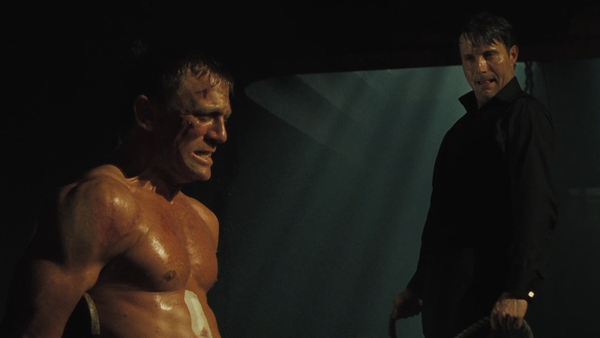

Share
12th January 2022
12:18pm GMT

 James Bond certainly wouldn't volunteer/Via James Bond[/caption]
Eight years later, the scientists sought to produce a male contraception option that was neither invasive nor irreversible. However the researchers realised that injecting metal into scrotums across the world could be painful, that heating them could cause "severe dermal damage," and that non-degradable nanoparticles could be toxic.
They attempted to use degradable magnetic iron oxide nanoparticles by injecting them into the veins of the mice and using a magnet on their privates for four hours to attract the particles. After a respite period that lasted between one and four days, they wrapped the testicles in an electric coil, which warmed the metal with the magnetic field to between 98 and 113 degrees.
They found that the mice's sperm count reduced after days of treatment, and more interestingly, found that lower temperatures meant the sperm count recovered at 60 days.
[caption id="attachment_311006" align="alignnone" width="600"]
James Bond certainly wouldn't volunteer/Via James Bond[/caption]
Eight years later, the scientists sought to produce a male contraception option that was neither invasive nor irreversible. However the researchers realised that injecting metal into scrotums across the world could be painful, that heating them could cause "severe dermal damage," and that non-degradable nanoparticles could be toxic.
They attempted to use degradable magnetic iron oxide nanoparticles by injecting them into the veins of the mice and using a magnet on their privates for four hours to attract the particles. After a respite period that lasted between one and four days, they wrapped the testicles in an electric coil, which warmed the metal with the magnetic field to between 98 and 113 degrees.
They found that the mice's sperm count reduced after days of treatment, and more interestingly, found that lower temperatures meant the sperm count recovered at 60 days.
[caption id="attachment_311006" align="alignnone" width="600"] Just another cautionary tale/Via There's Something about Mary[/caption]
They said: "The number of pups born to pregnant mice was almost the same and no visible morphological defects were observed in all the pups."
Rather concerningly, hotter temperatures meant the balls atrophied, and in some cases, the poor mice experienced "distinct black discolourations" across their baby-making factories. Then, the testicles were "severely damaged at 7 days" and did not recover if warmed at above 113 degrees.
Jeffrey Mo spoke on the issues of the study for The Conversation, stating that not many men would voluntarily strap the risk to their crown jewels. Instead, he recommends that the animal market could see the merit in such experiments.
David Powell, director of the Reproductive Management Center of the Association of Zoos and Aquariums, told The Conversation that: "Zoos are a very small market, and so drug companies don't have a lot of motivation to make animal contraceptives."
Yeah, stick with zoos.
Related links:
Just another cautionary tale/Via There's Something about Mary[/caption]
They said: "The number of pups born to pregnant mice was almost the same and no visible morphological defects were observed in all the pups."
Rather concerningly, hotter temperatures meant the balls atrophied, and in some cases, the poor mice experienced "distinct black discolourations" across their baby-making factories. Then, the testicles were "severely damaged at 7 days" and did not recover if warmed at above 113 degrees.
Jeffrey Mo spoke on the issues of the study for The Conversation, stating that not many men would voluntarily strap the risk to their crown jewels. Instead, he recommends that the animal market could see the merit in such experiments.
David Powell, director of the Reproductive Management Center of the Association of Zoos and Aquariums, told The Conversation that: "Zoos are a very small market, and so drug companies don't have a lot of motivation to make animal contraceptives."
Yeah, stick with zoos.
Related links:
Explore more on these topics: